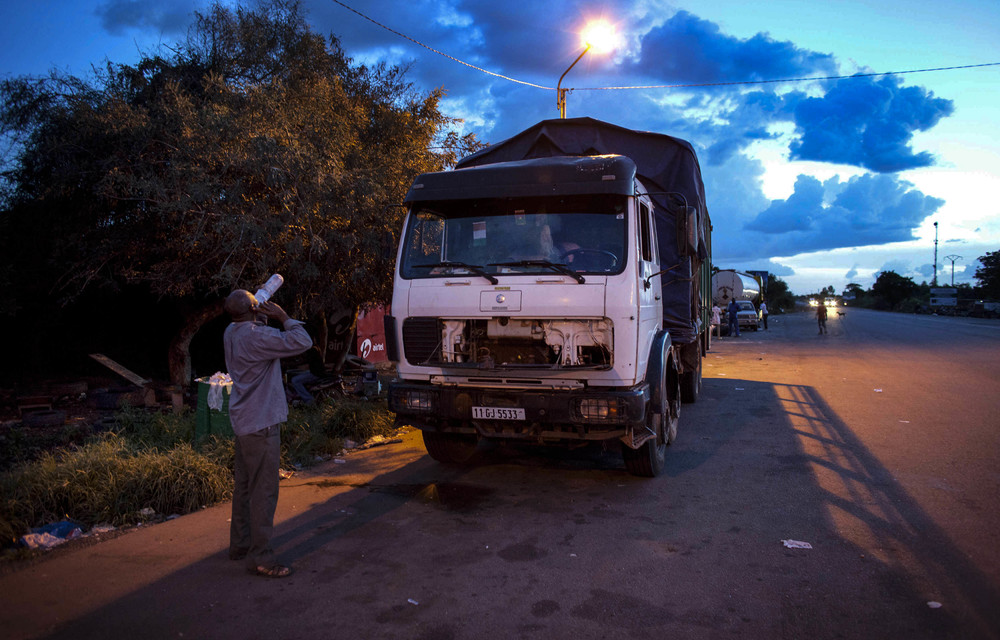© Copyright Bhekisisa Centre for Health Journalism | Privacy Policy | Terms and Conditions | PAIA Manual
Growing up with a mother who has schizophrenia is tough on a child
When a parent is diagnosed with a mental illness, the chances of emotional support are decreased and the risk of family discord is high.
How these pupils from SA’s poorest schools became doctors
The Umthombo Youth Development Foundation provides bursaries and mentorship to health science students from poor, rural backgrounds. Despite humble beginnings, these students are achieving exceptionally high pass rates. Here’s why.
The female condom showdown: Lovers Plus Inner Condom, the Cupid and the V
South Africa is pumping more money into female condom distribution. We look at what's on the market and what's to come for the femidom.
The downside of sex ‘enhancers’
There are many off the shelf products to help your sex life, but little is known about them – and their effects.
Forced abortions: A new frontier in the war on women’s bodies?
Partners and families allegedly drugged women and in some cases even physically restrained them as doctors performed the procedure.
‘This is the first time government has done something concrete for the poor’
This country tested out a national health insurance. Find out what happened next.
‘Bluetoothing’: The drug myth that fooled a nation?
Outreach workers say the practice making headlines isn’t as widespread as it’s been made out to be as they rush to prevent more from trying it.
Myths and methadone: Will Egypt’s laws bend to the rising tide of drug abuse?
The real revolution is yet to come when it relates to the country’s opioid epidemic.
Tongues & other taboos: Why queer sex ed is good for everyone
Lesbian teenagers have a lower chance of getting a sexually transmitted infection, but the threat remains. Even though South Africa’s sex education curriculum includes all the right lessons to help pupils of all sexual identities have safe sex in theory, the information that filters through to them is still up to individual teachers.
#SliceOfLife: I survived TB five years ago but the stigma still follows me around
It’s been eleven years since Zine Konwayo was first diagnosed with tuberculosis, but she is still dealing with the fallout of the disease. Not only has it damaged her lungs, but it’s also preventing her from finding a job.
‘I punched him on his potatoes’: Meet the grannies fighting back against GBV
Korogocho is one of Nairobi’s most dangerous slums, where rape and robbery are common. Beatrice Nyariara is helping women aged 55 to 90 to fight back.
Farmers vs. pharmacists: How South Africa’s ivermectin use slips through the cracks
There’s less demand for human ivermectin in South Africa when the country is in between COVID waves. But nobody is tracking how many people may be using the animal formulation.
#FreeToBleed: ‘A pool of blood gushed down my thighs. My white socks were red.’
Shame doesn't start when menstruation begins. It is built in slow steps.
Is codeine Africa’s drug of choice?
Common cough, flu and pain medicines can be addictive. Codeine addiction is an increasingly well-known problem in South Africa.
#SliceOfLife: I survived the most deadly type of TB, but it cost me a...
Goodman Makanda survived the most drug-resistant form of tuberculosis that scientists know of, but he lost a lung to the disease in the process. Now, he says he would “rather die” than take handfuls of TB medicine again.
Could a water birth be right for you? Weigh up the pros and cons
More South African parents are choosing to bring their baby into the world with a splash, but is it better than conventional births?








![‘Bluetoothing’: The drug myth that fooled a nation? [WATCH] Busted: Three myths about drug addiction](https://bhekisisa.org/wp-content/uploads/2023/06/c1bb5976-00-bluetooth-the-myth-that-fooled-a-nation-218x150.jpeg)








